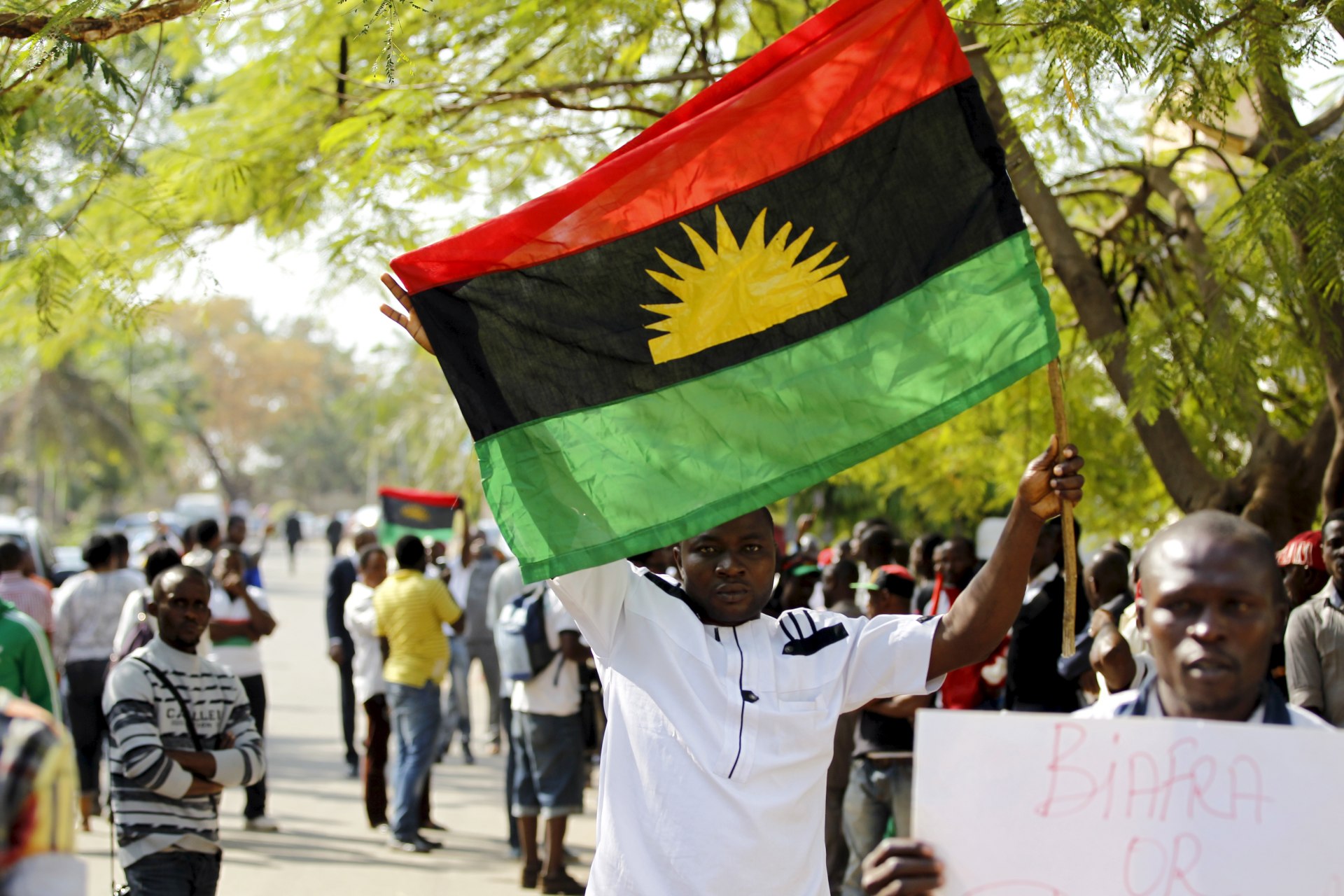Perpetual Separatism in Nigeria Needs to Be Addressed

By experts and staff
- Published
By
- Guest Blogger for John Campbell
Ayobami Egunyomi is a Robina Franklin Williams intern for Africa Policy Studies at the Council on Foreign Relations in Washington, DC. She received her BA in International Relations from Indiana University–Purdue University Indianapolis.
The Indigenous People of Biafra (IPOB) has ordered a sit-at-home for May 30 in the five southeastern states of Nigeria to commemorate the fifty-first anniversary of the Nigerian Civil War, in which “Biafra” attempted to secede. The IPOB primarily comprises members of the Igbo ethnic group, and reflects a desire to separate from Nigeria that dates back to before independence from British rule.
Nigeria, however, is not the only country that faces pressure from separatism. After their independence, over ten African countries have experienced armed separatist movements, many of which resent the retention of colonial borders. The African Union (AU) maintains that African countries should “respect the borders existing on their achievement of national independence.” Many in Africa, particularly separatist movements, see this as unfair, arguing that European colonists arbitrarily drew these borders when they partitioned the continent in the “Scramble for Africa.” They forced people from distinct religious and ethnic groups with diverse beliefs and little historical relationship into single political units. Sir Arthur Richards, the governor-general of Nigeria in 1948, aptly describes this problem: “It is only the accident of British suzerainty which has made Nigeria one country… they do not speak the same language and they have highly divergent customs and ways of life and they represent different stages of culture.” Two decades later, each of the three major ethnic groups in Nigeria, each more or less dominating one of the country’s three administrative regions, had at some point threatened to secede. However, only the Igbo ethnic group carried out this threat in 1967, leading to the death of perhaps one million civilians.
Many Igbos believe that they are and have been politically and economically marginalized. The Nigerian civil war emanated from a 1966 pogrom against ethnic Igbos living in the north. The pogrom itself was partly the result of a junior officer coup, popularly known as the “Igbo Coup,” which was led by four Igbo majors and one Yoruba major. The coup quickly took an ethnic coloration as its principal victims were northern and western leaders, leading some to believe the coup was a conspiracy by the Igbos to run northern elites out of government.
To begin to address separatism in Nigeria, the government needs to address the concerns and grievances of the Igbo ethnic group through dialogue as opposed to the use of military force. More so, it is important that the Nigerian government revisit the 3R policy of “Rehabilitation, Reconstruction, and Reintegration” promised after the Nigerian Civil War. Many scholars have argued that the failure of the Nigerian government to achieve this is one of the major reasons for the recurrence of other uprisings. This process would involve implementing the recommendations of past national conferences. Unless the Nigerian government takes some form of action to understand the concerns of the Igbo ethnic group, it risks the perpetual agitation for an independent Biafra.